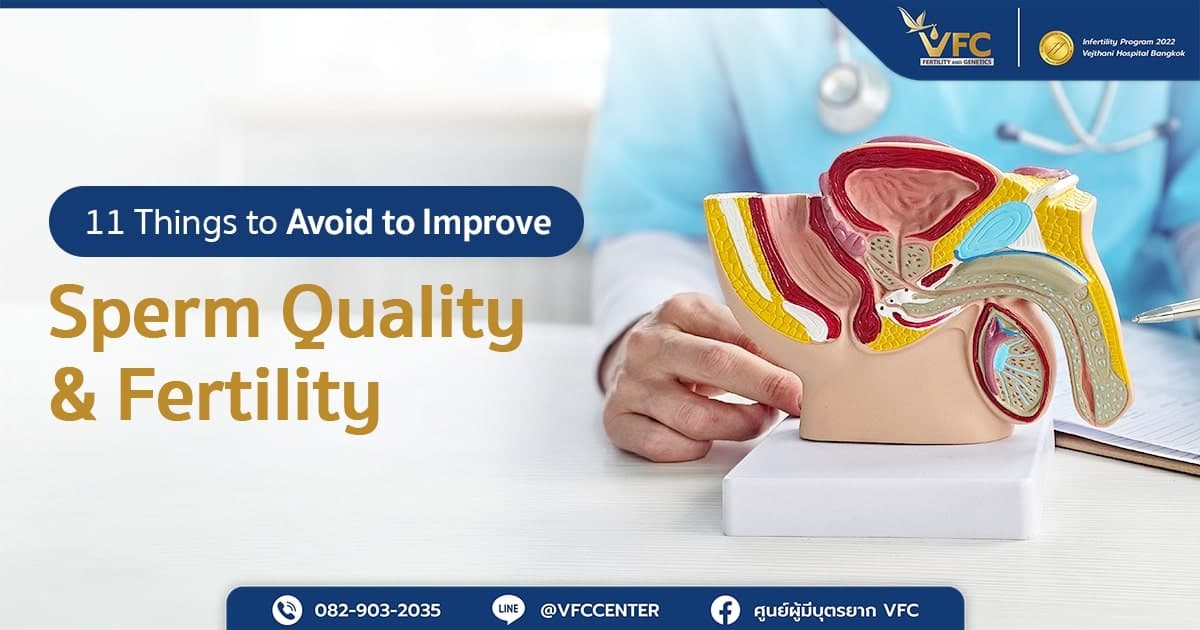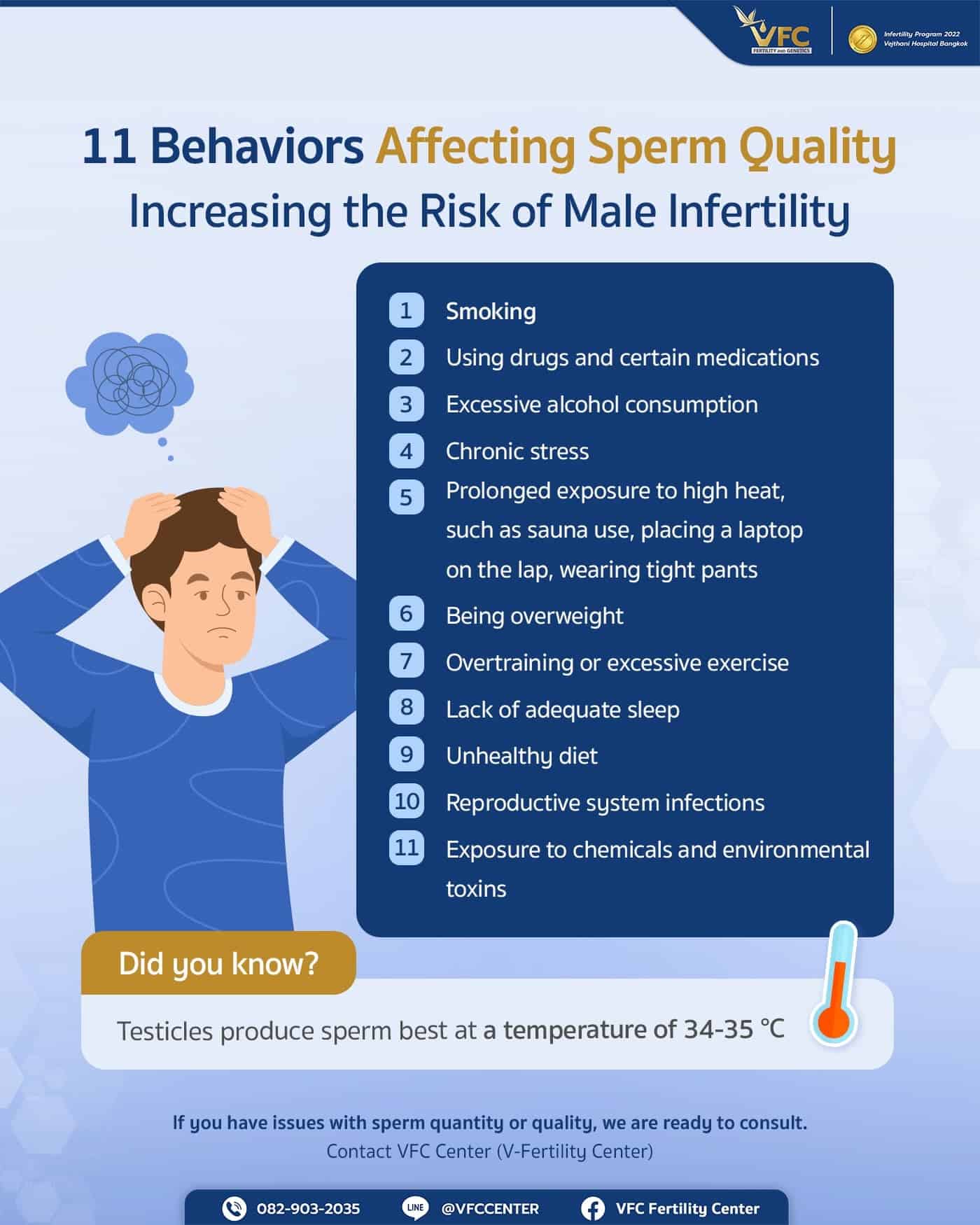
Sperm quality is a crucial factor for smooth conception and the birth of a healthy baby. But did you know that testicle temperature, the biological “factory” producing sperm, directly impacts sperm quality? Unfortunately, this important factor is often overlooked, leading to male infertility issues.
Testicle Temperature: A Key Factor for Sperm Quality
The testes play a vital role in producing sperm and the male sex hormone testosterone, which supports male sexual development and sperm production through a process called spermatogenesis. This process occurs in tiny tubes known as seminiferous tubules within the testes. Optimal sperm production happens when the testicle temperature is slightly cooler than the body’s core—around 34-35 degrees Celsius.
Spermatogenesis Process
Spermatogenesis generally takes about 64-72 days from stem cells to fertilizable sperm. The process includes:
- Spermatogonia cells in the testes divide by mitosis to increase in number and develop into primary spermatocytes with 46 chromosomes (diploid).
- Primary spermatocytes undergo the first meiotic division (meiosis I), reducing chromosome number by half, producing secondary spermatocytes with 23 chromosomes (haploid).
- Secondary spermatocytes undergo the second meiotic division (meiosis II), resulting in four spermatids, each with 23 chromosomes.
- Spermatids undergo morphological changes and mature into spermatozoa (complete sperm) with a head, midpiece, and tail, enabling motility and fertilization.
- Mature sperm are released from the seminiferous tubules into the epididymis, where they are stored and prepared for ejaculation.
How Does Elevated Testicle Temperature Affect Sperm Quality?
Excessive heat in the scrotal area can negatively affect sperm in several ways:
- It reduces sperm production, lowering both quantity and quality, thereby diminishing the chances of successful conception.
- Sperm motility decreases, making it harder for sperm to reach and fertilize the egg.
- Heat stress triggers oxidative stress, generating free radicals that damage sperm DNA. This damage increases the risk of miscarriage and genetic abnormalities in offspring.

11 Behaviors to Avoid to Reduce Male Infertility Risk
Male infertility can stem from many causes, including lifestyle factors that directly impact sperm health. Avoiding these behaviors can help maintain sperm quality and improve fertility prospects:
1. Quit Smoking
Cigarette smoke contains harmful chemicals like nicotine, carcinogens, and lead that damage sperm production, reduce motility, and disrupt hormone levels essential for sperm creation.
2. Avoid Illicit Drugs and Certain Medications
Substances like THC (from cannabis) and cocaine impair sperm formation and reduce testosterone levels. They can also constrict blood vessels, leading to erectile dysfunction and reduced fertility.
3. Limit Alcohol Consumption
Regular alcohol intake lowers GnRH secretion from the brain, which decreases LH and FSH hormones critical for testosterone production and sperm creation, resulting in fewer and abnormal sperm.
4. Manage Chronic Stress
Prolonged stress elevates cortisol, suppressing testosterone and sperm count, while increasing oxidative stress that harms sperm DNA and motility.
5. Avoid Prolonged Exposure to Heat
Heat from frequent sauna use, laptops on the lap, or tight pants raises scrotal temperature, disrupting sperm production and leading to abnormal, fewer sperm.
6. Maintain Healthy Body Weight
Excess fat converts testosterone to estrogen, causing chronic inflammation and oxidative stress that reduce sperm quantity and quality.
7. Avoid Overtraining
Intense exercise without rest increases cortisol and lowers testosterone, impairing sperm production and overall reproductive health.
8. Get Adequate Sleep
Insufficient sleep decreases testosterone and increases anti-sperm antibodies, contributing to fertility problems.
9. Eat a Balanced Diet
Diets high in fats and sugars but low in antioxidants cause oxidative stress, damaging sperm DNA and disrupting hormone balance.
10. Treat Reproductive Infections
Infections such as gonorrhea, chlamydia, or human papillomavirus (HPV) can cause inflammation of the spermatic ducts and testes. This inflammation damages the cells responsible for sperm production and increases the risk of obstruction in the sperm ducts, which may lead to infertility. Timely diagnosis and appropriate treatment of these infections are crucial to prevent long-term reproductive damage and preserve fertility.
11. Minimize Exposure to Environmental Toxins
Heavy metals and pesticides induce oxidative stress and epigenetic disruptions that reduce sperm quality and quantity.

Common Misconceptions About Sperm Quality Every Man Should Know
1. Frequent Intercourse Increases the Chances Of Pregnancy
Many believe that having intercourse frequently will boost the chances of pregnancy. However, excessive frequency may negatively impact sperm quality, especially if ejaculation isn’t sufficient between cycles, leading to a reduced sperm count and also decreased motility of sperm. If sperm count is adequate, frequent intercourse does not harm fertility. Therefore, planning intercourse around ovulation is essential to maximize chances of pregnancy.
2. Cannabis Has No Effect on Male Fertility
Cannabis use can disrupt sperm production by reducing sperm count and lowering sperm quality. THC, the active compound in cannabis, interferes with spermatogenesis and increases the risk of erectile dysfunction.
3. A Large Volume of Ejaculate Means High-Quality Sperm
The volume of ejaculate doesn’t necessarily indicate sperm quality. Key measures of sperm quality include sperm count, motility, and morphology. Even with a large ejaculate volume, a low sperm count or poor motility will decrease the chance of conception.
4. Low-Quality Sperm Means Infertility
Modern medical technologies like ICSI (Intracytoplasmic Sperm Injection) can improve chances of pregnancy even with low-quality sperm. This applies in cases of male or female infertility or other causes of reproductive challenges.
If you have been trying to conceive naturally without success, low sperm quality could be the cause. Don’t lose hope. At VFC Center (V Fertility Center), our experts provide advanced techniques including PESA, TESE, MESA, and TESA sperm retrieval to increase your chances of pregnancy. Our experienced reproductive specialists will guide and support you every step of the way in building your family.
Article by Dr. Wanakan Singhasena
Contact or Book a Consultation:
VFC Center – V-Fertility Center
Hotline: 082-903-2035
LINE Official: @vfccenter

OBSTETRICS AND GYNAECOLOGY-REPRODUCTIVE MEDICINE





No Comments
Sorry, the comment form is closed at this time.